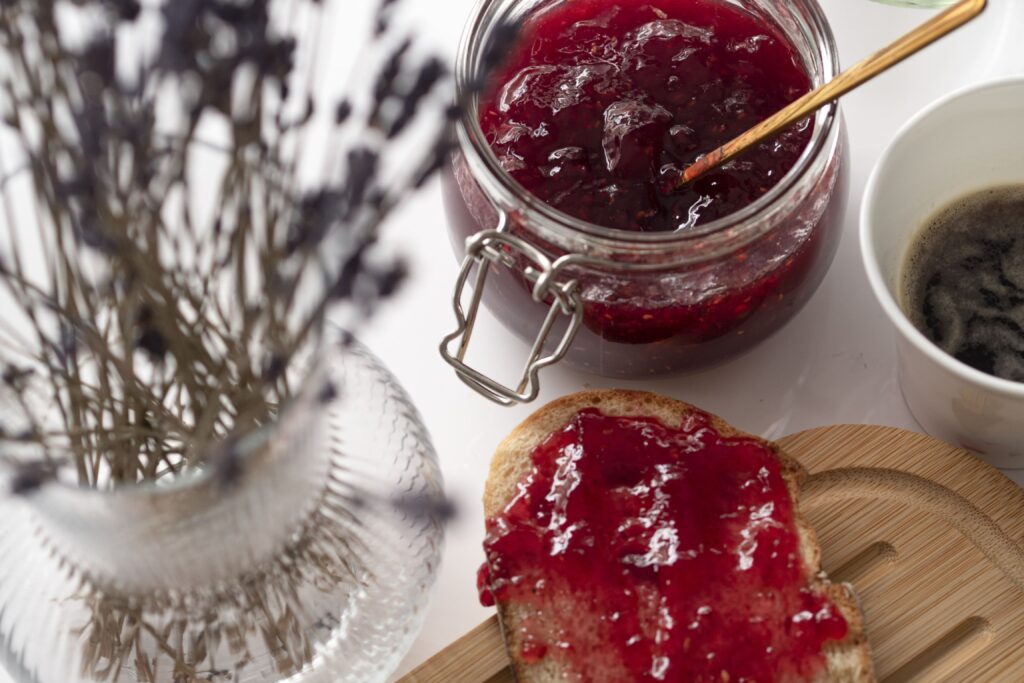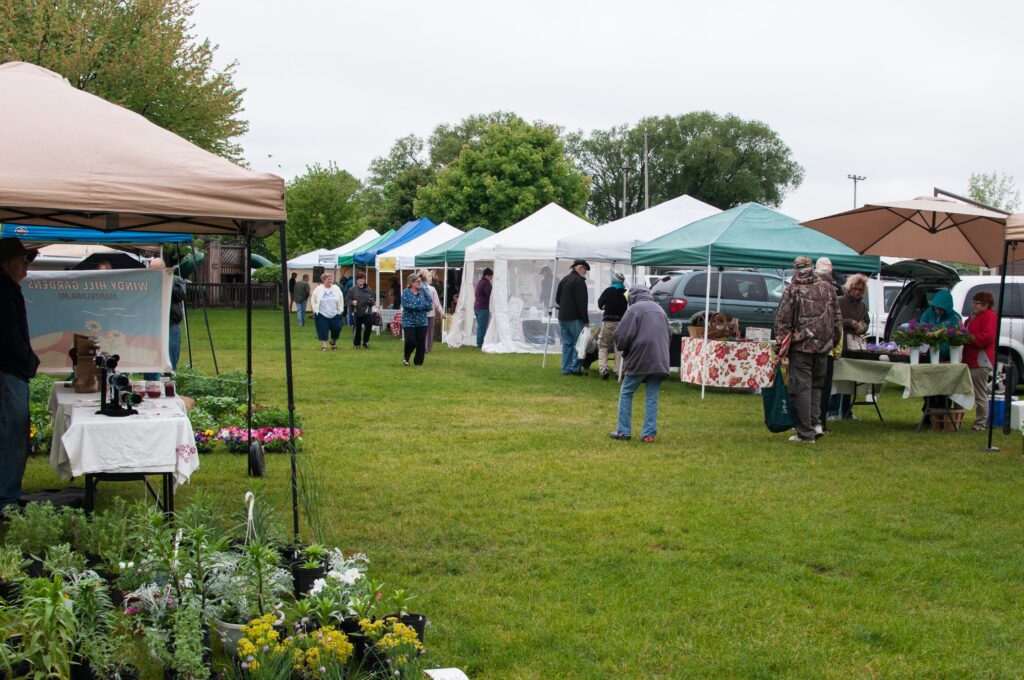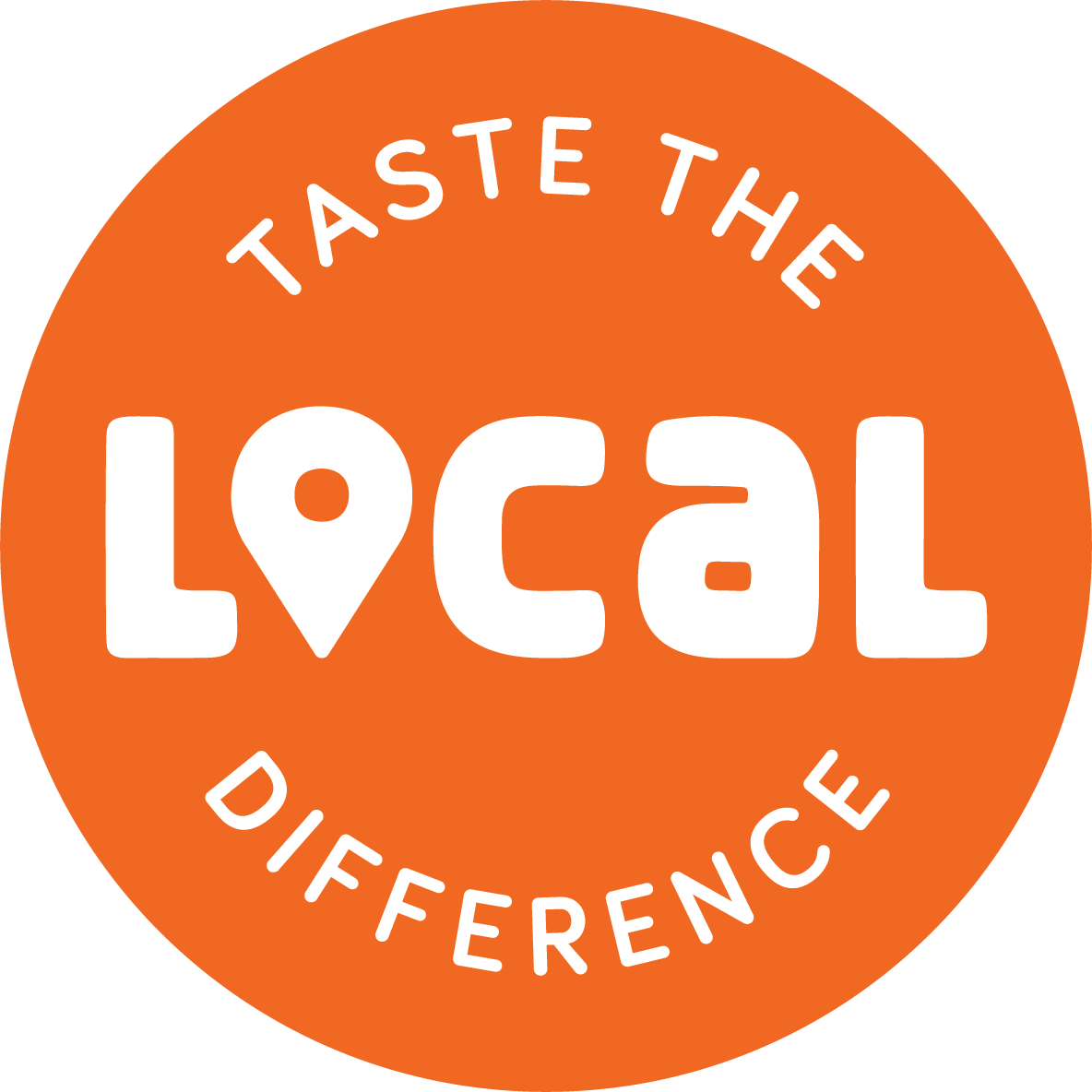Michigan Cottage Food Law: while it may bring to mind cheese, or an ancient gnome tending to stew over the fire in her ancient dwelling, the definition of these regulations is a bit more cut-and-dry. Michigan Cottage Food Law (PA 113) refers to regulations surrounding food makers preparing non-potentially hazardous food in their homes for direct-to-consumer sales. Foods like bread, cakes, vinegar, fruit jams and jellies fall under this category, while canned or fermented goods like kombucha, tomato sauce, salsa, and fruit butter do not.

What makes Michigan Cottage Food Law different from Michigan Food Law?
No Commercial Kitchen Necessary: Unlike food businesses that sell wholesale, retail, or online, cottage food operations don’t need to prepare and package their food in a licensed commercial kitchen. And good news! You don’t have to own a cottage either! Cottage Food Law covers entrepreneurs operating out of their primary single-family domestic residence, no matter its architectural style. What does that mean? Food preparation must happen in the place where you live (your home kitchen) and not a secondary residence or communal living situation (like a sorority house or group home).
Inspection-Free Food Prep: Since a licensed kitchen isn’t a requirement for cottage food operations, entrepreneurs are exempt from inspection. However, they are expected to practice food safety and must prevent adulteration from insects, household cleaners, and other contaminants.
Direct-to-Consumer Sales Only: Businesses licensed under Michigan Food Law can operate through a variety of sales channels including direct-to-consumer markets, retail stores, wholesalers, distributors, online, or through mail. Cottage food is distinct in the fact that sales must take place in-person at farmers markets, roadside stands, and other direct markets.
Annual Sales Cap: An advantage of utilizing Cottage Food Law as a springboard to a more extensive operation is that it allows you to test out products in the direct-to-consumer market. However, no matter how well your product is received, those operating under Cottage Food Law have a sales limit of $25,000 a year. If you reach that cap, it may be time to pursue a license and scale up!


What’s the benefit of selling under Michigan Cottage Food Law?
While the freedom to operate without state inspections or licensing is appealing, an even greater advantage is the fact that food makers don’t have to spend the money on a commercial kitchen space before they’re ready. Cottage Food Law is excellent for entrepreneurs looking to test their product on the market or simply assess whether the endeavor is something worth investing more time, energy, and capital into. For some folks, the small-scale nature of a cottage food operation is enough. Others may use it as a stepping stone to a larger, licensed operation. For those food makers, starting small presents an opportunity to perfect the product, packaging, and marketing efforts before pitching to larger markets.
Why should consumers get excited about Michigan Cottage Food Law?
If anything can be said about cottage food operations, it’s that they are local to the core. Since cottage food products are barred from retail, shipping, and distribution sales, all commerce happens close to home, literally. And because of the low barrier to entry, local food becomes more accessible for people to produce and consume with these regulations.
It also presents shoppers with the chance to get to know the person behind the product because they must interact with the seller to purchase the food. If you’re curious about ingredients or processes, simply ask! That being said, ingredients will always be listed on the labels of cottage food products along with allergen labeling, the address of the operation, and a statement that reads, “Made in a home kitchen that has not been inspected by the Michigan Department of Agriculture & Rural Development.” You can see examples of cottage food labeling on MDARD’s website.

Ready to take the next step in your food business journey?
There are many options when it comes to scaling up. For example, if investing in your own commercial kitchen doesn’t make sense for your business plan, look into incubator kitchens in your region that can provide support while you look for your own space! When you’re ready to get licensed, there are plenty of resources available to aid the process, like this step-by-step guide provided through the Michigan state website.
Other Resources + Reading:
- Michigan Cottage Foods Information from MDARD
- Join the Cottage Food Mailing List
- Can I sell this? Michigan Cottage Food Law from MSU Extension
- Cottage Food Law Food Safety Training from MSU Extension
- Checklist for Starting a Cottage Food Business
- Room to Grow: Incubator Kitchens in SE Michigan
Emily Row is the Brand and Media Manager at Taste the Local Difference. You may contact her via email [email protected].
